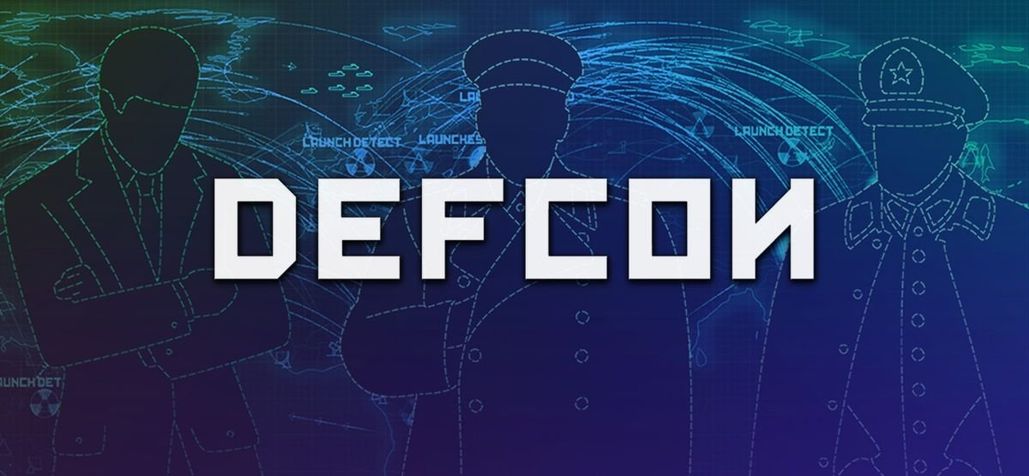Defcon
It’s July 2024, and I live in Europe. Nuclear war has been the spectre looming over my life for a couple years now, especially when, every month, and without fail, the air raid sirens are tested. Every month, they scream out across every city, town, and hamlet in the Netherlands, warning of the apocalypse that hasn’t yet arrived, but may. Living here with the potential dissolution of NATO riding on an election in which this country has no voice is a constant reminder of the insecurity of security, that rights and peace are not the default, but exist because of the struggle - past and ongoing - to attain them.
We remain one bad decision from annihilation, and there is nothing you or I can do to stop it. We are all in the hands of those we trust less than ourselves.
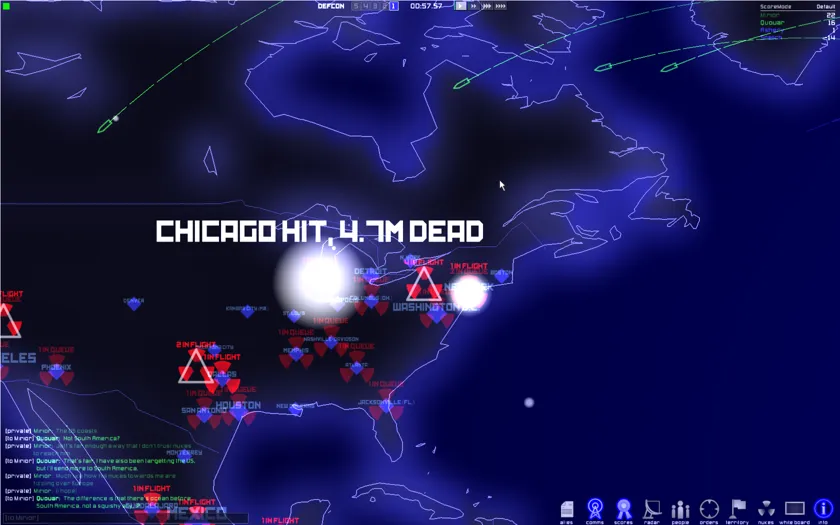 This seems…bad.
This seems…bad.
Defcon is a real-time strategy game simulating the outbreak of nuclear war. There are multiple modes to play, but I usually play the “launch nukes everybody dies” mode, for the obvious reason that it lets me nuke my friends into oblivion, and get nuked into oblivion in turn. Each player carefully places radar stations, air bases, nuclear siloes, and fleets to try and wipe out as much of their enemy as possible, gaining points based on the number of kills they get, and losing points based on the number of deaths they suffer.
I play this game with my friends, and, as previously mentioned, I enjoy hurling nukes at them and watching the bright white lights flash over their cities. I cheer on the nukes over voice chat, urging them on to Sao Paolo, Chicago, New York, or wherever they’re bound in that particular game. Names like Khabarovsk and Belem take on new meanings as missile after missile reduces them to the memories of radioactive ash and rubble. We get excited as missile defense systems buzz in a cloud around a nuke, and cheer when the missiles land. There is all the satisfaction of seeing a good plan come to fruition combined with knowing it’s a friendly razzle between friends.
The soundtrack is quiet in the background. Soft sobs intercut the music. 4.7 million dead in Chicago, and Berlin took a glancing blow. These are the brief interludes before I cheer on the missile bound for Los Angeles once again.
My partner lives in Los Angeles. It’s not him I’m thinking about.
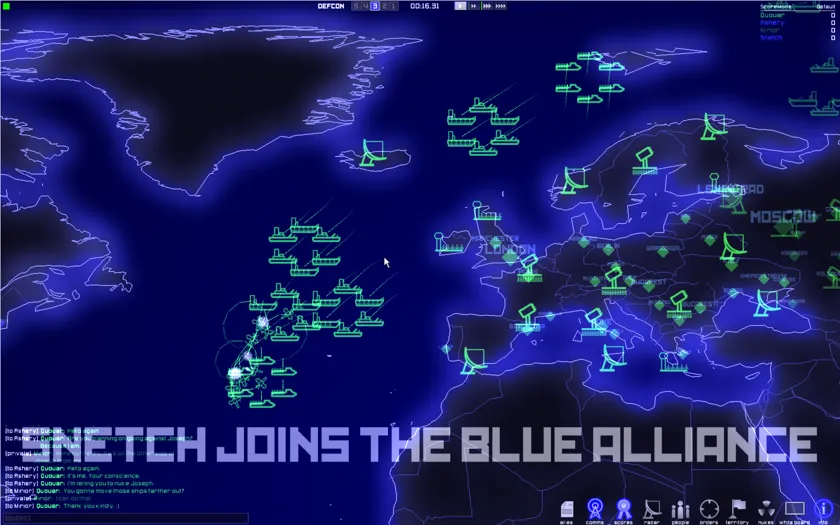 Snetch is a jerk.
Snetch is a jerk.
In my Among Us review , I discussed what it is video games actually let us do, and why they’re so compelling. Video games allow us to step outside our reality and into another. Whether that’s a grounded reality, like we might find in a small puzzle game , or some grand cyberpunk epic , we are able to experience a reality well outside our own, and in so doing, get a window into another version of ourselves. We can experience what it is to do or see things we would never otherwise be able to, and thus, better understand who we actually are. In my Among Us review, I put this in the context of an emotional abuse simulator, with the game providing an opportunity to learn and understand what it is to be a manipulator and abuser, but that’s just one example. We experience being another person, replete with the emotions and memories that entails.
What Defcon presents is the experience of being disembodied and removed from all empathy, of looking at the world solely in terms of its population. Defcon provides the opportunity to play out the fantasy of being in the echelons of power, and from that vantage point, decide the fate of life on Earth. We masquerade as the psychopaths who view nuclear war as something winnable, and delight in doing so. It is a position we will never be in, and experience we will never have, and so perhaps, the thrill is in the novelty of it. There is a thrill in viewing deaths as a statistic, even as your conscience, waking brain understands the horror of it.
I cheer as Los Angeles vanishes in a blaze of white light. San Francisco turns to glass. I’ve lost Manchester, but soon, they’ll lose Houston.
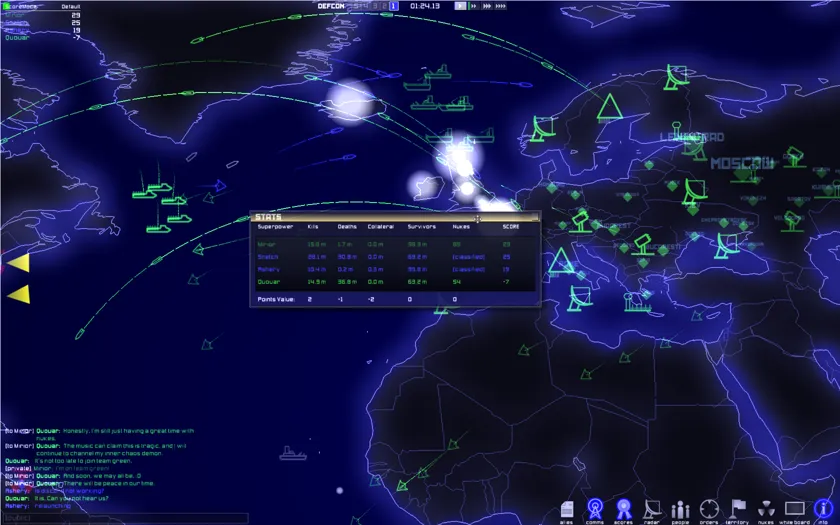 I never said I was good at this game, just that I enjoyed it.
I never said I was good at this game, just that I enjoyed it.
It is possible to kill most of the population of my country with a single, well-placed missile. Dropped on its capital, the fireball would envelope its old buildings, souvenir shops, and merrily chiming tram lines, vaporising them in an instant. The shockwave would level centuries of history, crushing millions in the rubble of the buildings that have withstood everything but this. It would expand, demolishing all the surrounding cities, and causing third degree burns across every one of the millions of residents in this cluster of ancient cities. The shockwave would send glass and concrete spraying out across anyone not caught outside. The mushroom cloud would extend over the area of the entire country, bringing with it the rain that would end what remained of life, the sirens blaring over what remained.
My city is too small to be in Defcon. We’re not a good enough target to merit a nuke. That doesn’t mean I don’t look outside at the clouds and envision what could be.
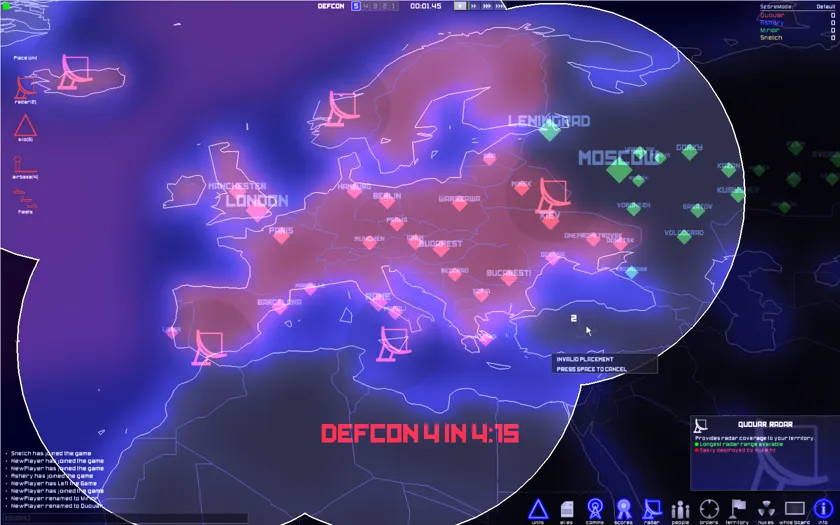 What a lovely red map.
What a lovely red map.
From a game design perspective, Defcon is a lovely example of a strategy game that understands the assignment. It’s simple to learn, hard to master, and satisfying in how it requires its players to think about strategy. Diplomacy is as important as a player chooses to make it. Base positioning is key. Awareness of the circumstances and adapting is vital. It’s everything one would want in a quick war game.
None of that is what brings me back to it, though. None of that is what keeps me fascinated as I watch nuclear missiles fly towards the deaths they will cause. I’m high on that sense of control, the idea that, when nuclear war comes, I will have some say in what happens. I am the arbiter of my own destiny in a world that is hostile and insistent I never can be. It’s up to me whether London, Paris, or Berlin is destroyed, and it’s up to me whether I survive the aftermath.
I am, of course, wrong. Defcon, like every other game, gives a taste of a world that is not my own, and of a person I will never be. I have no control, and I have no say in how the future will play out. If the sirens come, I will die in an instant alongside everyone else. For all its ability to make nuclear war seem like something that can be won, Defcon also emphasises that, fundamentally, it cannot be. However many of the other team’s cities you nuke, your own will suffer alongside. The deaths are tallied in the millions, and the suffering remains incalculable.
When the game ends, I am returned to my world. I glance out the window, checking for the mushroom cloud. My fate is not, and never will be, my own, and Defcon is a reminder of that. We are numbers in the minds of psychopaths, left at their mercy while our world burns.
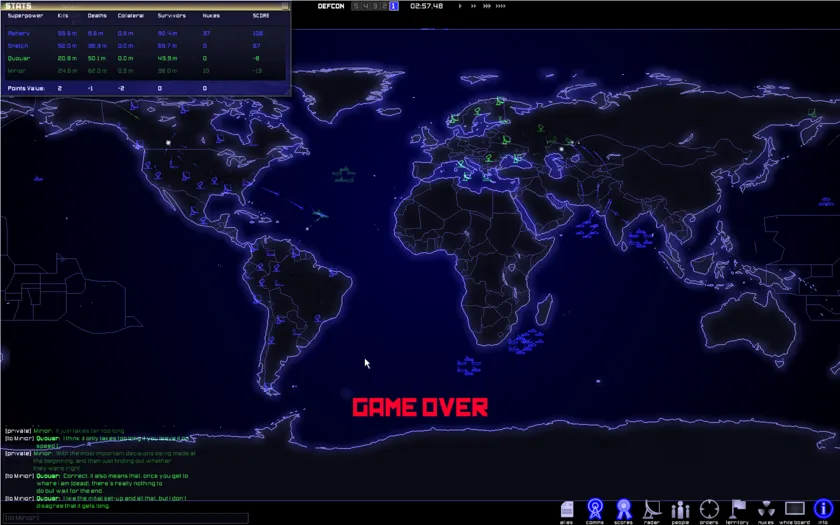 A screenshot from Defcon
A screenshot from Defcon
Developer: Introversion Software
Genre: Real-Time Strategy
Year: 2006
Country: United Kingdom
Language: English
Play Time: 1-2 Hours/Game
Youtube: https://youtu.be/bkqC7k8xBBI
